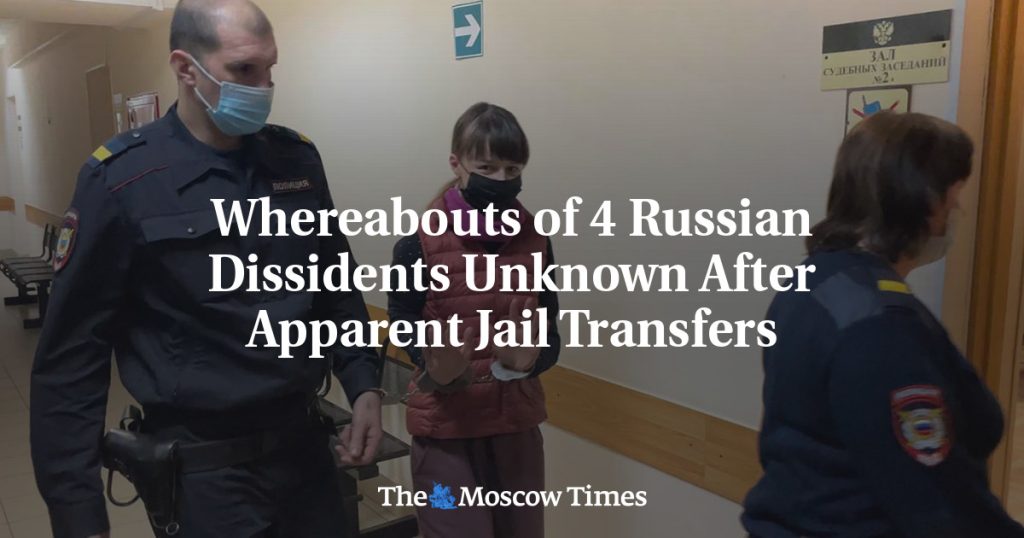Four Russian political prisoners, Lilia Chanysheva, Ksenia Fadeyeva, Oleg Orlov, and Alexandra Skochilenko, are missing after being transferred to new prison facilities, according to their lawyers and relatives. This practice of secret and lengthy transfers is common in Russian prison authorities, as seen with the late Kremlin critic Alexei Navalny before his death in February. Chanysheva, the first of Navalny’s associates to be arrested on extremism charges in 2021, was serving a nine and a half-year sentence in a penal colony in the Perm region before her disappearance. Fadeyeva, another Navalny ally, was informed by her lawyers that she had also left prison in the Novosibirsk region without any further information.
In addition to Chanysheva and Fadeyeva, Oleg Orlov, the co-chair of the human rights group Memorial, was reported to have “left” the prison in Syzran where he was being held. The 71-year-old activist was sentenced to two and a half years in prison this year for opposing the invasion of Ukraine. Artist Alexandra Skochilenko, who was sentenced to seven years for her activism, was also moved to another facility, believed to be in Moscow. The reasons for these transfers are unknown at this time, and it is unclear if they are connected in any way.
The sudden disappearance of these political prisoners raises concerns about the treatment of dissidents and activists in Russia. The lack of transparency in the Russian prison system, particularly with the secret transfers of high-profile inmates, highlights the challenges faced by those who speak out against the government. The cases of Navalny, Chanysheva, Fadeyeva, Orlov, and Skochilenko underscore the dangers faced by those who advocate for human rights and democracy in Russia.
It is important to note the ongoing crackdown on independent journalism in Russia, with The Moscow Times facing challenges from the government. Designated as an “undesirable” organization, the publication continues to strive for accurate and unbiased reporting despite the threat of prosecution. The support of readers is crucial in defending open journalism and combating repression in Russia. By standing with independent media outlets like The Moscow Times, individuals can help uphold democratic values and freedom of the press in the face of increasing censorship.
The uncertain fate of these political prisoners underscores the need for international attention and advocacy for human rights in Russia. The disappearance of Chanysheva, Fadeyeva, Orlov, and Skochilenko raises questions about the rule of law and the protection of fundamental freedoms in the country. It is essential for the international community to monitor and condemn human rights abuses, arbitrary detentions, and disappearances of activists and dissidents in Russia, holding the government accountable for its actions.
In conclusion, the cases of these missing political prisoners shed light on the challenges faced by those who oppose the Russian regime and advocate for democracy and human rights. The lack of transparency in the Russian prison system, along with the crackdown on independent media, highlights the need for continued international support for those fighting for freedom and justice in the country. By standing in solidarity with dissidents and activists in Russia, individuals can help uphold democratic values and defend against authoritarianism and censorship.


